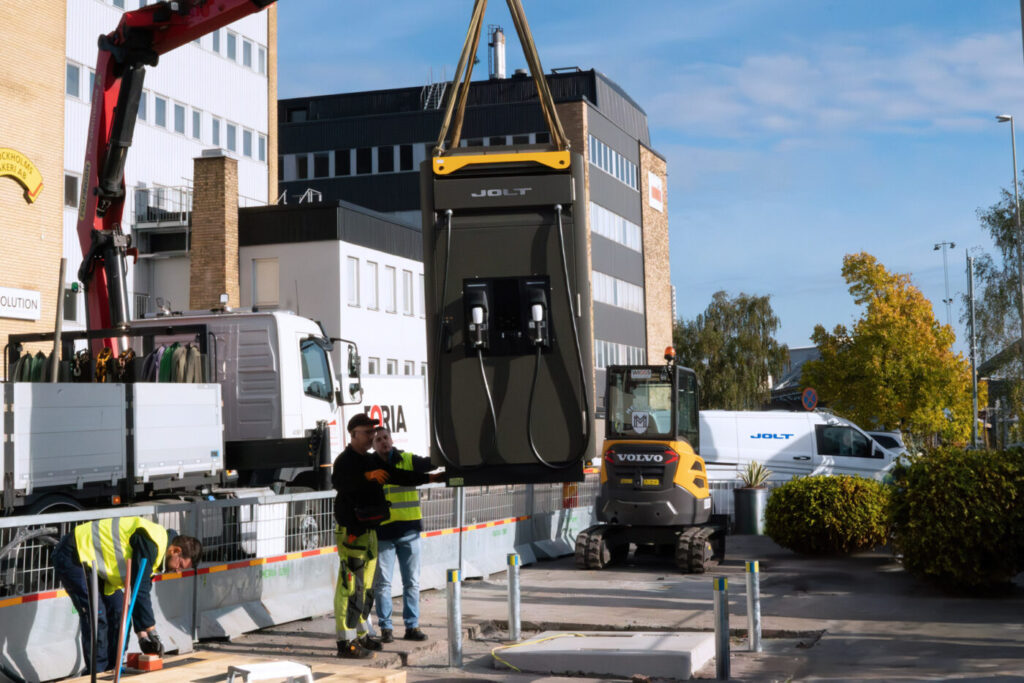
SWEDEN. JOLT Energy to build 50 battery-buffered HPCs in and around Stockholm
JOLT Energy, based in Munich, is a fast-charging infrastructure provider specialising in cities’ EV infrastructure. The company relies on battery-buffered charging stations, which, thanks to the integrated battery storage system, do not require a correspondingly powerful grid connection. With a purely low-voltage connection, the battery-supported fast chargers can be installed more easily and without complex construction work – thanks to the buffer battery, charging capacities of up to 300 kW are still possible.
JOLT Energy will now install 50 battery-supported HPCs in the Swedish capital. The cooperation with Smart City Stockholm provides for the construction in heavily frequented urban areas, including on the grounds of the royal castle Djurgården. There, electric cars with a high charging capacity can recharge for a range of 100 kilometres in just five minutes, provided the buffer battery is sufficiently charged. And with a grid connection corresponding to a standard AC charging station with 2x 22 kW.
Thanks to the high charging power, more cars can be charged per day at such a station than with an AC charging station. JOLT Energy describes its product as “extremely area-efficient.”
“This technology offers considerable advantages, especially in densely populated cities with scarce parking space. Thanks to the high space efficiency, we create additional space for cycle paths, public transport or green recreational areas, which increases the quality of life in cities,” explains Rauno Fuchs, Vice President of Government Affairs at JOLT.
The city of Stockholm does not need to cover the higher acquisition costs of such an HPC column with battery storage compared to the aforementioned AC chargers: JOLT plans, finances, and operates fast-charging clusters in metropolitan areas as a charge point operator (CPO). In Germany and the Netherlands, JOLT already focuses on the sustainable strategic expansion of its public charging network on private land in major cities such as Munich, Berlin, Hamburg, The Hague, and Rotterdam.
In Stockholm, it is working with the city, and the charging points will be installed on public land. JOLT Energy hopes that this flagship project will have a positive impact in other markets, as it “proves the effectiveness of its city cluster strategy in public spaces.”
“We invite all German city leaders to learn about our partnership with Stockholm and other innovative European cities and to benefit from this experience,” says JOLT CEO Maurice Neligan. “Together, we can quickly implement solutions for a fast and cost-efficient expansion of HPC charging infrastructure in public spaces – without placing an additional burden on municipal budgets.”
Nils Blom, project manager for the City of Stockholm, adds: “The cooperation with JOLT Energy is an important element for us in achieving our ambitious climate targets. It is a good example of a technology that enables ultra-fast charging in areas with limited grid capacity.”
JOLT Energy is not alone on the market with battery-powered fast chargers. ADS-TEC Energy also develops, builds and sells such charging solutions – JOLT Energy even used the ChargeBox from ADS-TEC Energy for several projects and relies on ADS-TEC technology for its own MerlinOne column with a large display.